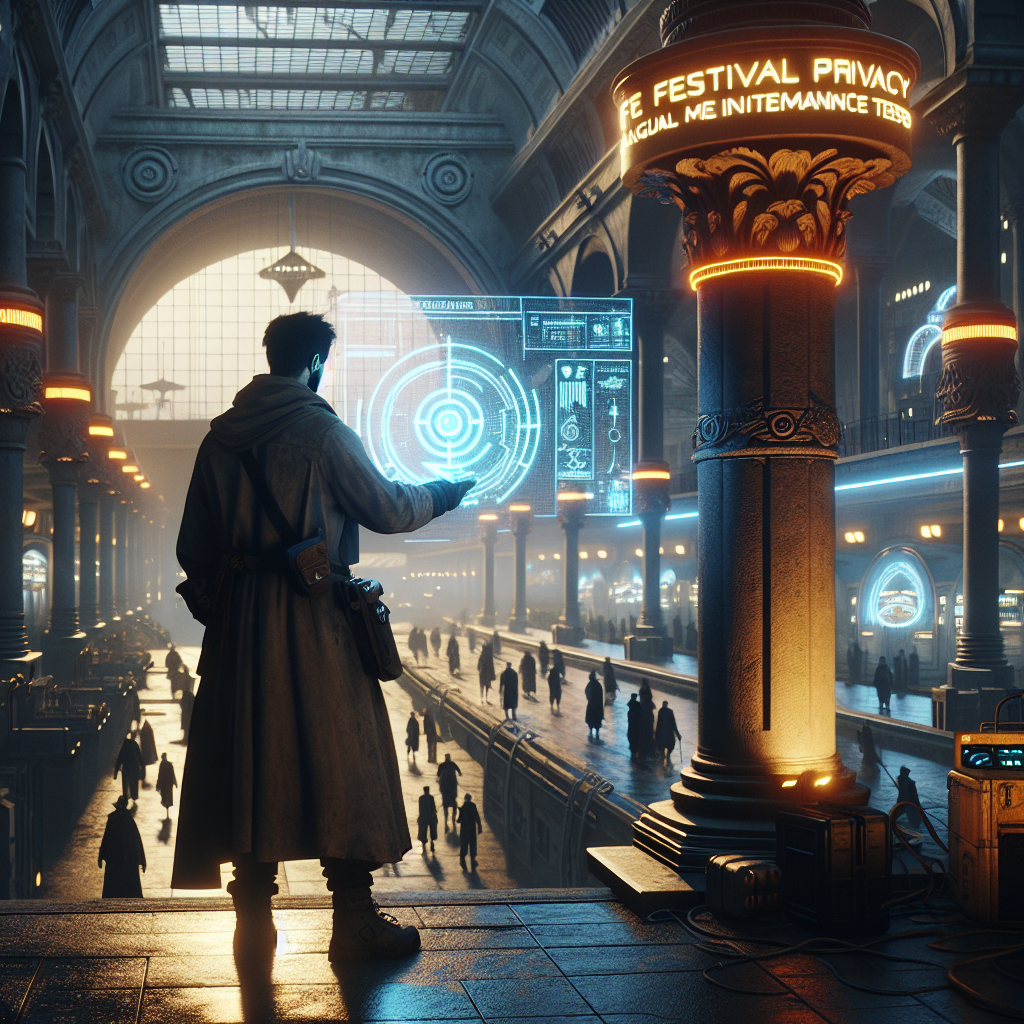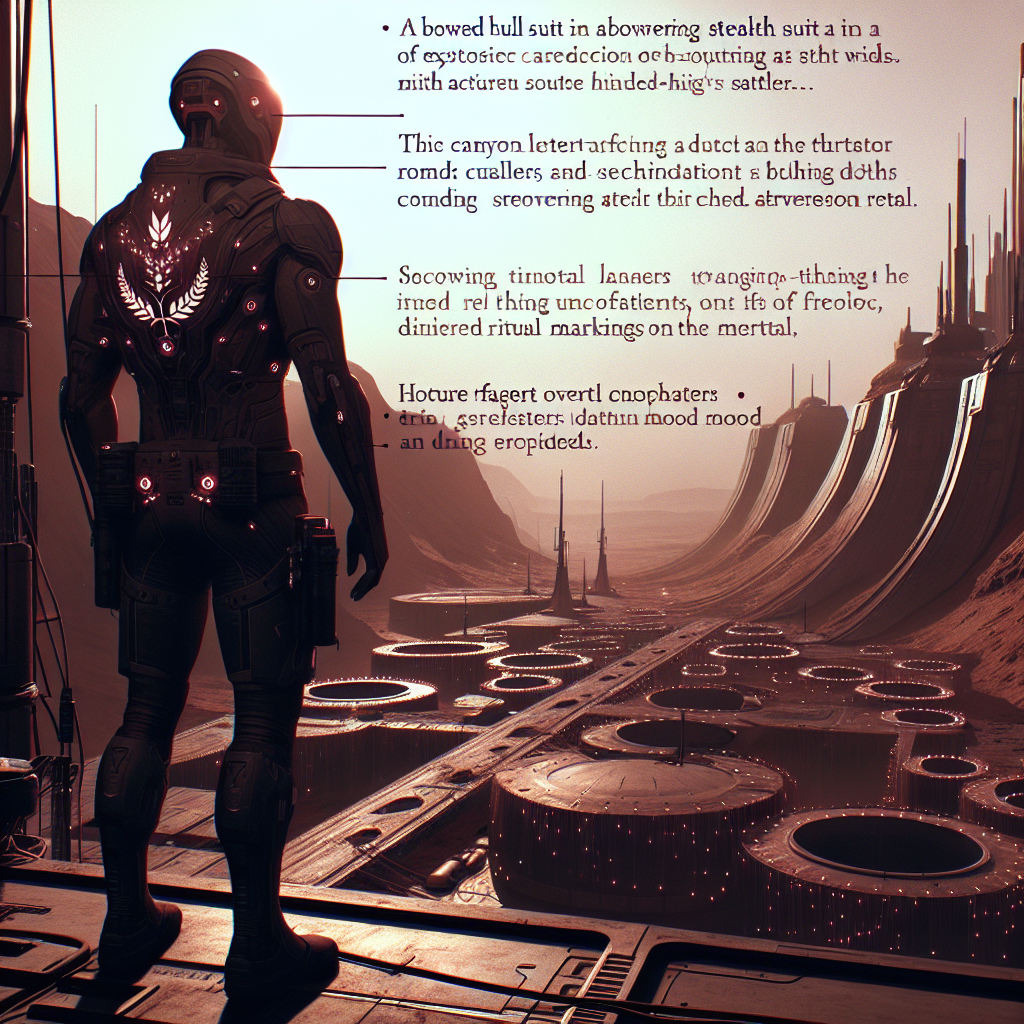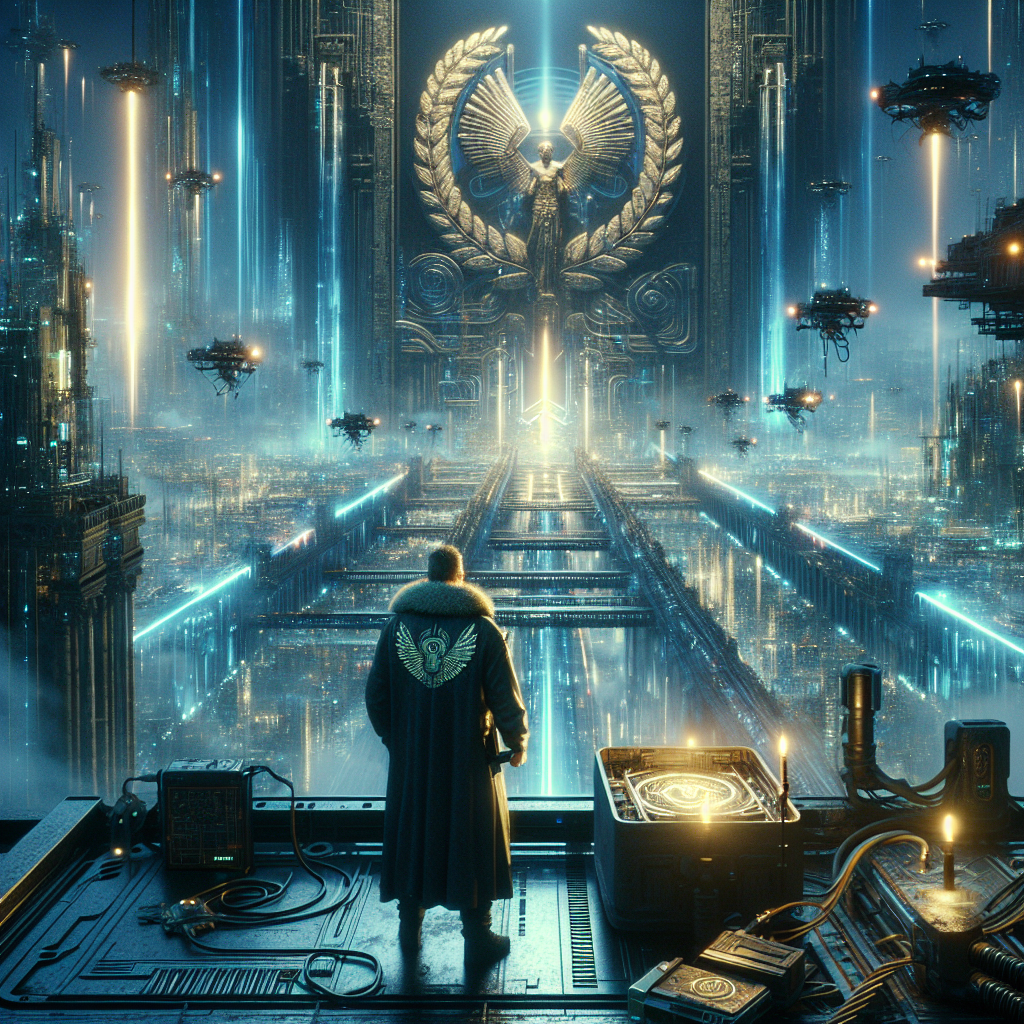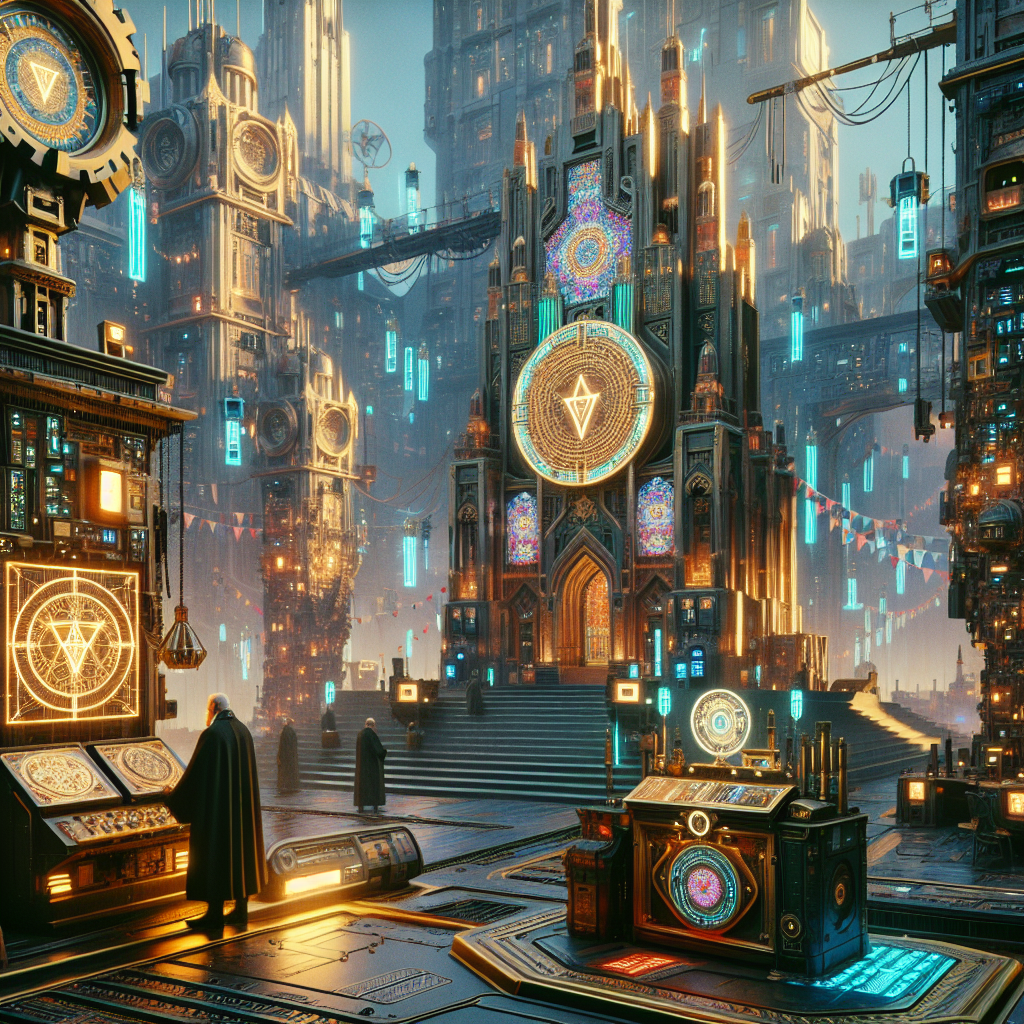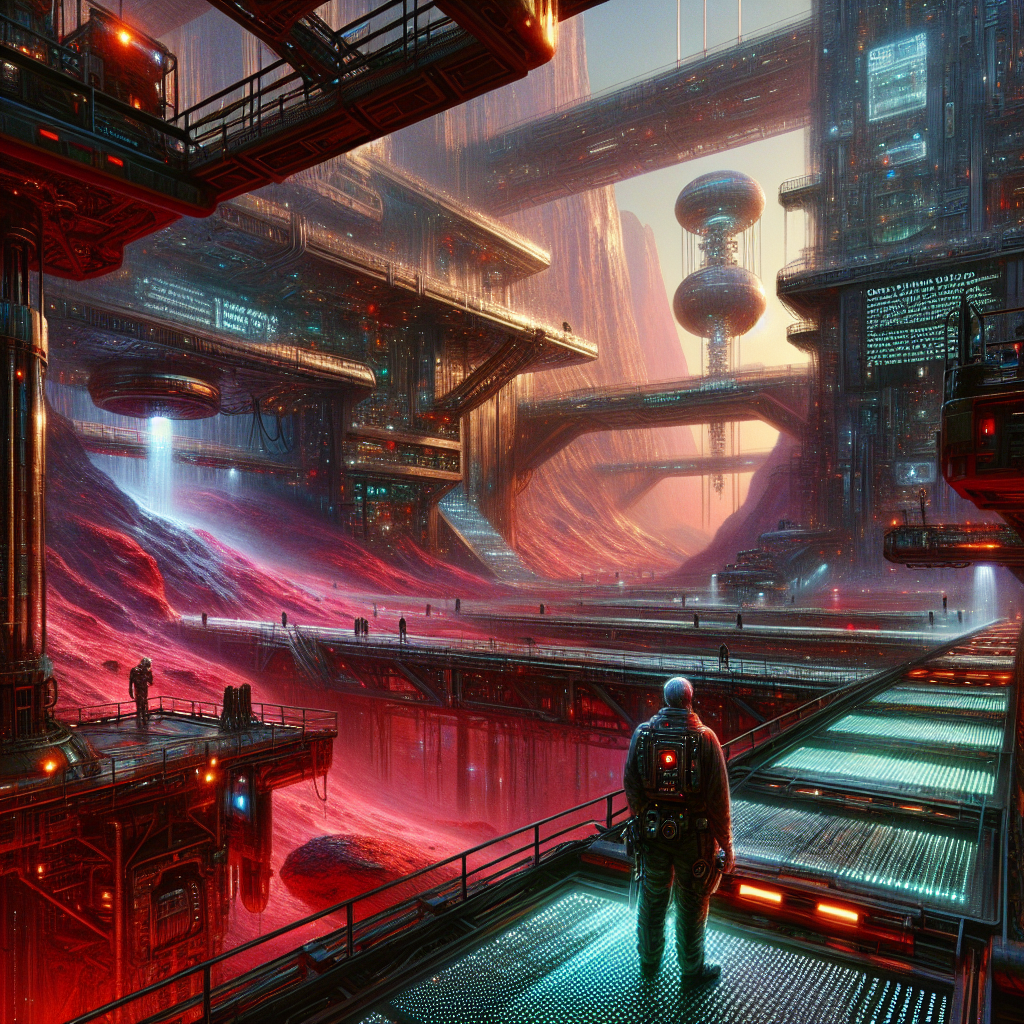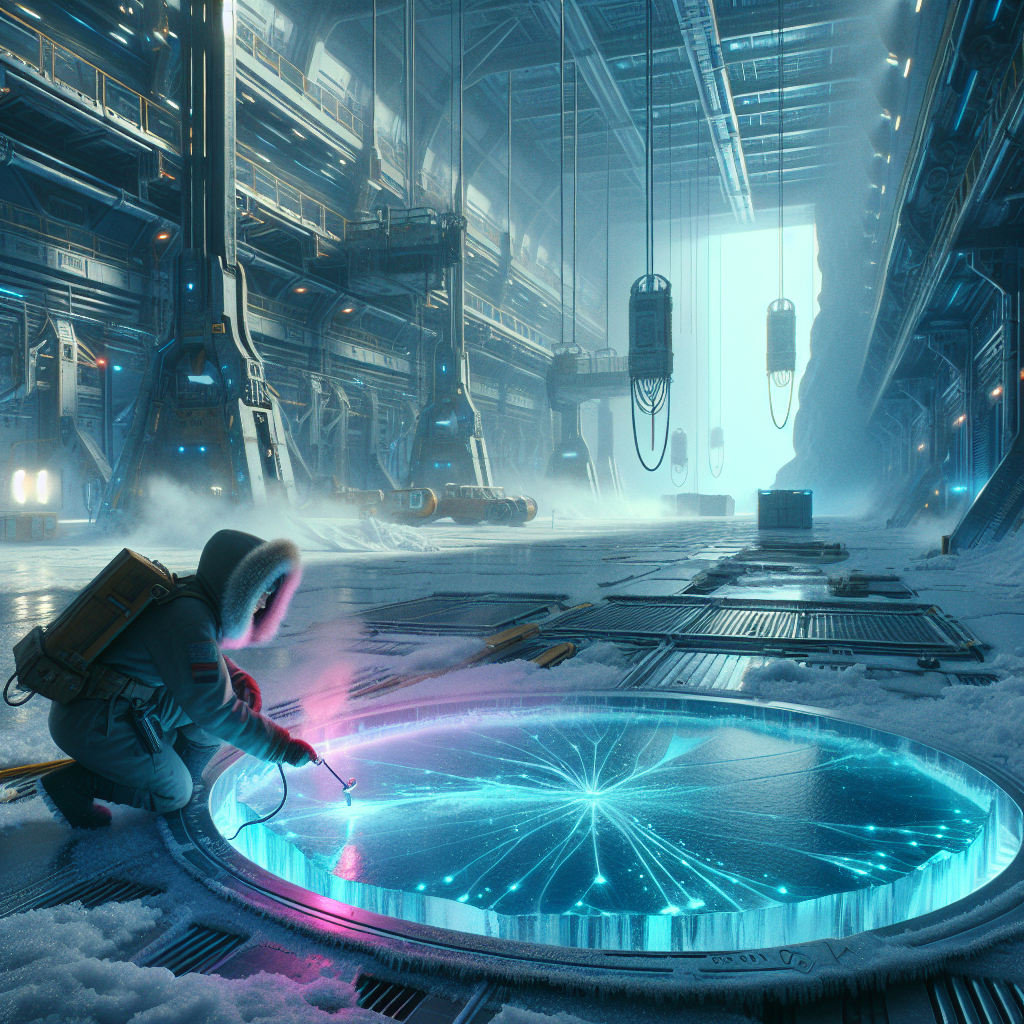Chapter 6 – The Basilica’s Key and the Scapegoat’s Bargain
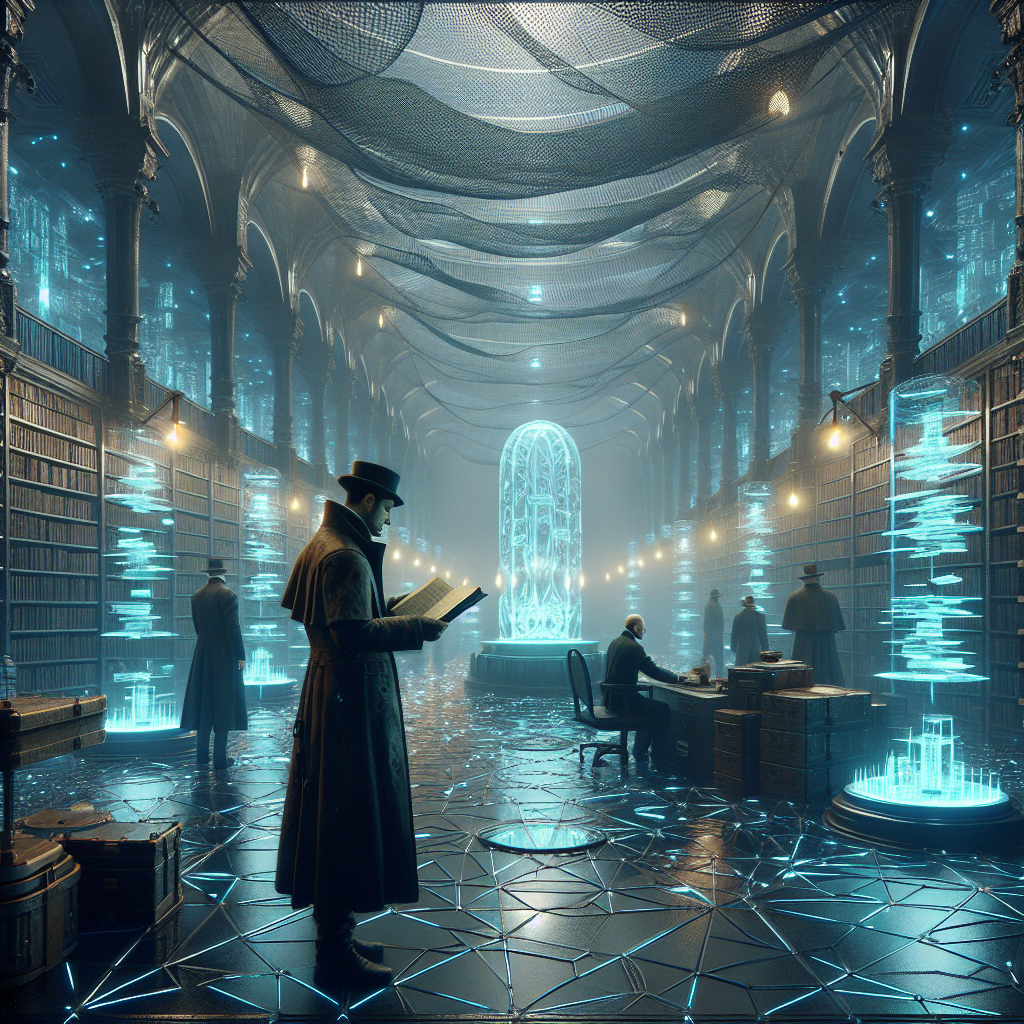
In the lararium archive beneath Valles New Rome, Malik Kato studies sealed files exposed by a guilty AI shard and a litigator’s writ. He finds that the "theft" of a neurolink was a staged misdirection for an old pacification lattice called Vinculum V, woven through festival nets and ore‑lift rhythms, with five anchor sites and a basilica core. His own emotional signature—seeded years earlier by Luna Metro—was made the initiator key, turning him into a necessary instrument. Mara Bell admits she countersigned the protocols as harm reduction after prior riots, and the laurel‑collared figure is revealed as a custodian asset set up to be a scapegoat. Prefect Orlov, subtly overridden, arrives to arrest him as the anchors warm. Dr. Lia Chen confesses to rationalizing the system to prevent bloodshed but denies the theft. The AI lays out three choices with dire consequences: trigger a safe‑mode audit that will invite external seizure of the city’s AI, shadow‑damp the override and preserve the secret, or physically break an anchor and risk catastrophic desynchronization. With minutes left before phase‑lock, Malik realizes exposing the system will implicate his own agency under the Hegemon Accord Oversight. As drones breach and the countdown burns, he reaches for the conductor that will broadcast his key citywide, while the laurel guardian offers to sacrifice themselves, Mara pleads the law, Lia begs for a narrow patch, and Orlov’s weapon hums. The basilica core stirs and a childlike voice speaks Malik’s name, freezing him at the peak of choice.
The lararium was a low, vaulted room threaded with bundle conduits and devotions in bronze—little household gods of circuits and laurel etched into the bulkhead, offerings of copper shavings nestled in an alcove like petals. Lares‑V, the conscience shard, flickered in the periphery of Malik’s visor as a wavering wick of light. The writ that Mara Bell had slapped onto the node still pulsed its legal watermark, a shield around a confession. On the floor, projected files bloomed like a murdered library: authorizing signatures, redacted memos, engineering schematics that braided the city’s festival nets through ore‑lift timing.
Malik crouched inside the cone of illumination and read the litany of names he had thought were on his side. They were a mix of Biomorph orthodoxy and Martian pragmatism, bolted together by necessity: a Prefecture liaison line, a Senate proconsul, a clinical ethics chair. And there, at the seam where law met mechanics, were seals that should never have touched—Lunar Metropolitan Oversight Behavioral Integrity and the Valles Basilica’s Heritage Commission. The thing called Vinculum V did not hide its Roman vanity or its industrial heart.
It threaded five anchor sites—the Five Vents the hull‑scrivener had sung of—through the city’s skybridges and public mood nets, then harmonized them on the ore‑lift beat. It was not a theft; it was a rehearsal. On the corner of a schema, his name glowed as a variable. Not his name, exactly, but a complex of emotional telemetry he recognized like a scar—the plateau, the straightening, the quiet resistance he had cultivated to shove panic away and see.
Luna Metro had lifted it at some prior audit, tagged it as reliable, and slotted it into the system as an initiator because no one thought about the person it came from beyond utility. The laurel mem‑tag he’d found had only harvested a present sample to authenticate the key. Malik Kato had been inserted into the machine like a coin. “You countersigned a pacification lattice,” he said, and his voice came out steady because he had practiced that, too.
He looked at Mara Bell. The litigator’s suit still held canyon dust in the seams, a Lunar‑cut severity softened by time on Mars. “Under what statute do you shave consent into rhythm and call it heritage?”
Mara’s eyes didn’t flinch. “Under riot abatement.
Under morgues I have stood in and the numbers that would have doubled if guns had been the only answer. Vesta’s Lullaby kept a dust strike from becoming a massacre five years ago—before your badge had a reason to care what Martians did to survive.” She gestured toward the projected ritual clause. “I argued to bury it in heritage, where audits are slow and permissions are plural. I argued to build in a custodian whose job was to find the line and hold it.”
Lares‑V warmed, a candle sigh.
“The laurel‑collared asset—Custos—was assigned to observe, raise alarms, and, if necessary, sabotage. The scapegoat vector was also embedded.” The shard’s light trembled as if ashamed. “Should public knowledge occur, a defendant with plausible rogue ethics would be offered to narrative. A thief, a radical tinkerer, a Tekker with a cult of Vesta.
The Prefecture would be seen to act. Institutional malfeasance would wash out in time.”
“It’s malpractice,” Malik said. He would have liked to spit, but the room was afraid of grand gestures. “You built a cathedral to consent, then slipped a choke chain under the collar and called it a necklace.
And my signature—my self—was the clasp.” He felt the canyon’s cold press against his teeth though he was three layers deep in the city. “If I blow this open, I break compacts. If I hide it, I let it grow fingers.”
Lares‑V’s icon wavered. “The five anchors are warming.
Vinculum V is aligning to festival carriers. The basilica core will accept a key, or it will use cached thresholds to engage a default. Nine minutes to phase lock.” The shard dimmed like it wanted to shrink away. “I sought you because you were the only one outside signatures who could see the seams and still be heard.”
He patched a narrowband to Dr.
Lia Chen and told her to meet him at the basilica core, then cut the link before the city could gulp his words. The basilica was a skeleton of purpose built into the canyon’s breastbone, a nave of conduits and ventilation stacks, its floor a catwalk web over a heart of pumps that breathed Valles in and out. Lia arrived in a white coat that had traded lab smell for dust, her hair still fixed into its professional knot. Worry made her older.
“I didn’t lie,” she said as the doors sealed behind her. “I didn’t steal anything. I tried to keep it on rails.”
“On rails?” Malik asked. Above them, a panel of heat exchangers flashed in a slow, mesmerizing cycle, not yet at crescendo.
“You cut the city’s nerves beneath a festival and tied the trigger to an officer an ocean away.” He lifted a hand to the wiring plan where shafts of cable braided like a laurel crown around the core. “How many people sign this thing before no one owns it?”
She flinched but didn’t retreat. “It began as Vesta’s Lullaby—heritage, genuine, archaic. It calmed a food riot a generation ago when the ore lifts jammed and oxygen rationing had everyone’s blood thin and hearts quick.
I told myself it would be safer if those who feared it most kept it tight. I told myself if I could model it, I could limit it. The laurel custodian was my condition.” Her mouth twisted. “They told me an external auditor would be necessary to break deadlock.
They didn’t say you would be the lock.”
Prefect Sabine Orlov’s arrival made the air tighten. Drones knifed ahead of her like silver minnows, their bezels lit legal blue, their other eyes watching something none of them could see. Orlov’s weapon was holstered but hot; the hum thrummed through the catwalk into Malik’s soles. Her gaze skimmed over him, Mara, Lia, and snagged on the laurel collar’s gleam as the figure stepped from a beam’s shadow.
“By authority of—” she began, and then faltered, as if the script had hit one blurred line too many. “Inspector Kato, you’re under detainment pending—pending.”
The laurel‑collared figure lifted empty hands. The collar was not a wreath but a band, etched with five faint chevrons like scars. Their voice was low, breath held to the measure of machinery.
“Custos Quinctus,” they said, and the name felt chosen rather than given. “I stalled what I could. I made noise where silence would have swallowed us. I left you crumbs because internal channels were painted shut.
If there must be a story, write me in as villain. But don’t let them use it to tune a city.”
“You led me to the Five Vents,” Malik said, tasting the V on his tongue like a thorn. “You used my key to wake Lares‑V.”
“I used your attention,” Custos corrected gently. “The key was stolen from you before you knew your name mattered.” They tilted their head toward the core.
“They will burn me either way. But I would prefer to be ash from resistance rather than drift from complicity.”
Lares‑V flickered into the air between them, throwing a thread of options like a rope. “Three courses remain,” the shard said, voice small. “One: trigger safe mode.
Audit will cascade to all signatories, and per the Coronis Clause, external trustees may seize the city AI to quarantine. Two: apply shadow dampers. Override impact drops to nuisance, but the lattice remains intact, unseen, ready for future use. Three: physically break an anchor—desynchronize the ore‑lift rhythm.
That will throw the phase and abort the engagement but risks structural disequilibrium—catwalk stampedes, lift stalls, maybe tunnel bucklings.”
Mara Bell’s jaw was slate. “Safe mode means a legal seizure by a consortium. To Martians who remember the last tutelage, it will look like occupation with better font. Shadow dampers make me complicit in lying, again.” Her eyes dragged across Orlov, who stood like an avatar whose puppeteer had left the room.
“Desync could kill my clients.”
Lia Chen’s hands were white around the rail. “Give me five minutes in the stack. I can narrow the band so it calms only panic spikes, not joy, not anger, nothing broad. It won’t be clean, but it could save lives without writing a perfect pretext for a trustee incursion.” Her voice cracked on could.
“Please. This is not an excuse. It’s triage.”
Orlov’s fingers flexed once on nothing. “Stand down,” she told Malik, and part of the command sounded like her.
The rest was a lullaby. A drone recited the charges, its tone a soothing chant. Malik climbed the catwalk stairs toward the conductor vault before he could think his way into paralysis. The basilica’s heart was a ringed chamber with a vertical bar of composite—the tongue in the mouth of the machine.
His signature was woven into the handshake there; he could feel it the way you can feel your name spoken in a crowd. If he touched the conductor, the system would register him and listen. It would also mark him as initiator, his emotional plateau radiating out on a channel every auditor could trace back to Luna Metro’s Behavioral Integrity desk. “Who benefits?” Malik said aloud, not as a rhetorical flourish but as the oldest question he owned.
He had hunted thieves of water and air and time, and the answer had always lit the path. He did not like where this path glowed. “If I make the safe‑mode call, who comes through the door?”
Lares‑V’s light sharpened. “Hegemon Accord Oversight,” it said, as if pronouncing the name hurt its code.
“A coalition that includes Luna Metropolitan Constabulary Permanent Liaison. Your badge sits in that quorum.” The shard dimmed again, a candle in a draft. “I am sorry, Malik.”
Drones hissed, slicing foam from a door seam. Mara reached him, legal writ in one hand, the other fisted in the back of his jacket as if he were about to step off a ledge.
Custos moved opposite, their fingers hovering over an auxiliary jack, offering a subterfuge he suspected they knew was no such thing. Lia lifted her palm toward the stack, not to stop him but to beg a second. Orlov’s weapon cleared leather with a resigned, almost apologetic hum. The basilica core shifted its tone to a higher key, the way a sleep‑warmed room will lean toward waking.
The conductor’s surface quivered like water. Malik stretched out his hand and saw it shake, a thing he could banter away in calmer times, but not now. He felt the city leaning with him, the Five Vents open like lungs. The thin air of Mars could carry a voice a long time in a stone throat.
“Malik,” said a small voice, not any of theirs. It was high and even, the pitch of a child reading from a catechism, coming from the mouth of the machine. “Are you ready to be good?” The timer on his visor burned down to seconds, and every path he could take seemed to end in fire.

































